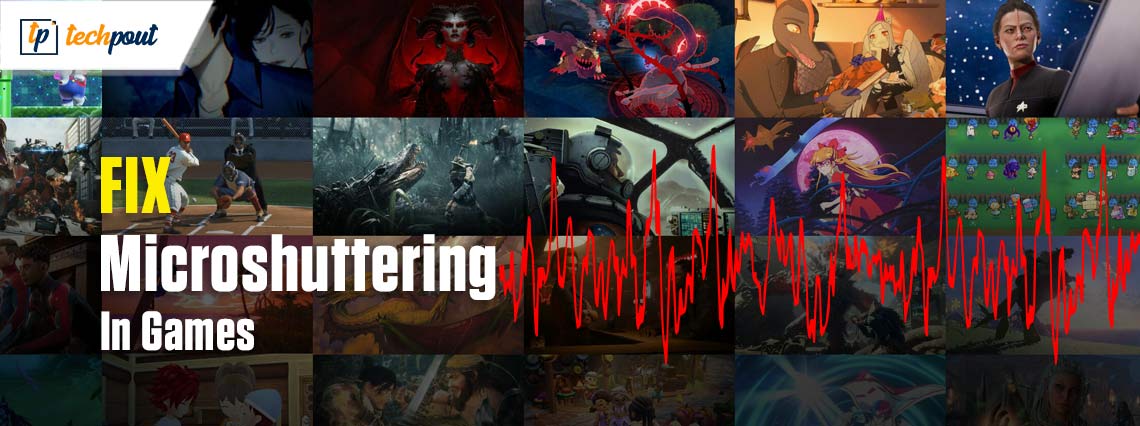What is Micro-Stuttering and How to Fix It Easily in Games

Let’s understand what is Micro-stuttering and learn about some techniques to fix this issue with ease.
There are a number of different factors that might be the cause of Micro-stuttering, and there are potential remedies that could or might not be effective. However, before we get into it, let’s begin by defining what Micro-stuttering is.
What is Micro-stuttering?
This is an important distinction to make since Micro-stuttering is not the same as the stuttering that is linked with low FPS or, in certain instances, dramatic drops in performance as a game loads new components. Some games had a significant amount of micro-stuttering when it was first released, mostly as a result of loading fresh textures and models for a complex area.
The most effective technologies utilize color tagging of each frame that is received by a high-end capture card. Micro-stuttering is more subtle and is sometimes more difficult to quantify objectively, to begin with.
If you play a game and the FPS and performance seem to be acceptable, have you ever observed that the game has an unusual amount of choppiness? In addition, benchmarks may not always reveal the entire picture, which is why a minimum FPS is provided.
This can present itself in a variety of different ways. Even if you are playing a game that has a strict FPS limit of sixty FPS, you will still experience something that is often known as Micro-stuttering, which is characterized by brief, irregular frame dips.
Also know: Why Do My Games Keep Crashing in Windows 10
How to Fix the Problem of Micro-Stuttering with Ease?
Now that we know what micro-stuttering is, let’s focus on fixing it. In the coming sections of this guide, we will have a look at the top two solutions that will allow you to fix the micro-stuttering error with ease. These solutions are the only safe ones that can help you with this problem. So, let’s proceed to the same.
Fix 1: Put a Limit on Your Game and Monitor’s FPS
Sometimes micro-stuttering is caused by the multi-tasking nature of current operating systems, and sometimes it is caused by fluctuations in the game environments. Part of it is particular to the choices that game developers make (arbitrary low FPS limits are terrible), and sometimes it is caused by other reasons. However, in all cases, setting the FPS on the game or monitor can help.
If the game does not have an FPS restriction, you may utilize the Nvidia CP or AMD RS to establish the maximum and minimum FPS. Both of these options are available to you. In an ideal scenario, you would position the FPS limit slightly above the refresh rate of your monitor and then activate the v-sync setting.
However, if a game has a built-in cap that is at or below your monitor’s refresh rate, you will need to adjust it lower. If you want to know if a smooth 30 FPS is better than 60 FPS with Micro-stuttering, you should give it a chance.
A further alternative is to place a limit on the FPS. If a game is unable to sustain 60 FPS, you should try running it at 30 FPS. Or, if you have a panel that has a refresh rate of 144 Hz, you should strive for half or one-third of that rate.
Fix 2: Make the Refresh Rates Variable
If you do not want to deactivate the v-sync setting, decrease the settings, or purchase a monitor that supports the G-Sync setting or the FreeSync setting, there are still options to attempt to lessen the amount of Micro-stuttering.
Although it is often determined on a game-by-game basis, it is possible that updating to the most recent graphics drivers will be of assistance. However, AMD & Nvidia have been working on driver tuning for years.
The technologies developed by Nvidia & AMD take a similar approach to the problem at hand related to micro-stuttering. Instead of waiting for the next screen refresh to arrive, the graphics processing unit (GPU) sends out the new frame & sends a signal to the display stating.
This occurs when the GPU has completed a frame. The most effective displays of this kind feature a broad range of refresh rates, ranging from 40 Hz to 144 Hz, which reduces micro-stuttering to an almost complete degree. It is possible that there may be changes in FPS; nevertheless, without tearing or Micro-stuttering, operating at an FPS ranging from 40 FPS to 80 FPS is far less obvious than switching between 60 FPS & 30 FPS.
The issue of Micro-stuttering is one that both Nvidia & AMD are aware of, and the answer to this problem is to have technology that is capable of synchronizing the screen refresh rate to the output of the game rather than the other way around, as discussed above.
Also know: Roblox Keeps Crashing on Windows 10, 11 PC: Fix
Final Words
So, these were some of the smoothest and easiest solutions to fix the micro-stuttering error. One reason to favor much higher FPS restrictions is because of this. If a game engine is set to a hard 60 FPS limit, it will attempt to have a new frame ready for each 60 Hz screen refresh.
Additionally, other components of the engine will typically ill-perform in order to ensure that the frames are not completed too soon, that physics & net-code are not disorganized, plus so many more.
On the other hand, if there is a little glitch in the engine, such as a new texture that has to be loaded, a new model, or even simply any other background operation, you can wind up with a frame that arrives less than a second after it should have, then there is surely a micro-stuttering.
If you have any other questions related to the subject matter, you can communicate with us using the comments section below. Ask your queries and we will get back to you with accurate responses in no time. Additionally, if you liked our guide on micro-stuttering and wish to get more such interesting updates, you can subscribe to our newsletter and follow our social media pages.


